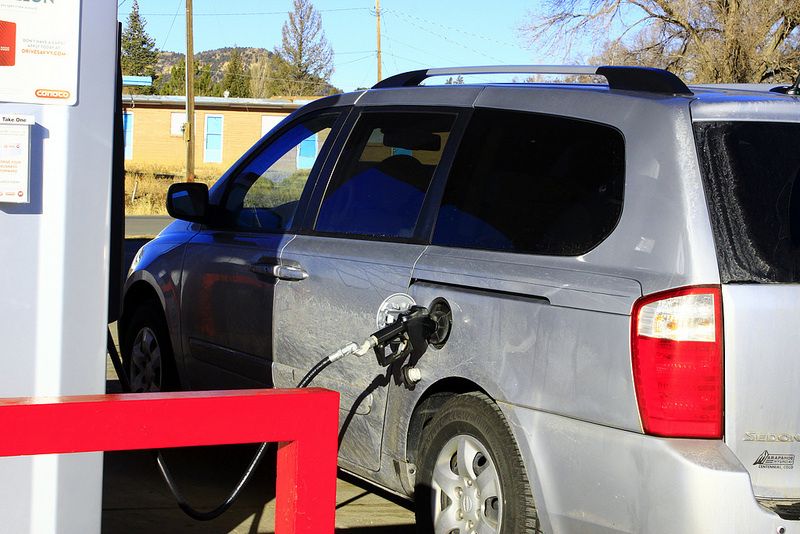| Utah is projecting a budget surplus of $638 million as lawmakers convene in January. That means the state has collected a lot more money from you in 2014 than it really needed. So how would you feel about a tax increase? As absurd as that might sound, it is where Gov. Gary Herbert is trying to nudge the Legislature. And although the thought may raise your blood pressure, there are good reasons behind this. |
| | Utah hasn’t raised its gasoline tax since 1997. A lot has happened since then. Inflation has reduced the value of the 24.5 cent-a-gallon tax to about 17 cents today. Cars are more fuel-efficient, and some are hybrids. People fill up less often and pay less tax. Put it all together and the state’s user fee for funding highways isn’t bringing in nearly as much as is needed. And looming on the horizon is a projected deficit of $11 billion in transportation funding needs through 2040. With gas prices falling, it seems this is a great time to raise the tax. You would hardly notice. Except, if you were paying attention during the last few paragraphs, the last 17 years have amply demonstrated that Utah’s gas tax no longer works. It is a failing funding mechanism. Why would Utah want to expand something that doesn’t work? Utah isn’t alone on this road. It is one of 36 states that apply a fixed per-gallon gas tax. According to the Pew Charitable Trusts, inflation has reduced the effective rate in these states by a combined 29 percent since they last raised their taxes. Gov. Herbert understands this. When he met with the combined boards of the Deseret News and KSL recently, he mentioned some possible alternatives, such as making the gas tax a sales tax, instead. But all you have to do is look at falling gas prices to see how volatile that would be. No, this is going to take some radical thinking. Fortunately, others already are hard at work on the problem. Oregon, for instance, has begun testing ways to tax people for the miles they drive, rather than the amount of gas they purchase. A Pew report on this says private contractors are coming up with different ideas involving everything from smartphone apps to onboard odometers. They are trying to find ways to separate the miles driven within a state from those driven somewhere else, which wouldn’t be taxed. Also, someone will have to figure out when to charge the driver for these miles. An end-of-the-year bill for thousands of dollars doesn’t sound like a great way to build fuzzy feelings about government. And then there is the problem of privacy. With the NSA already listening to our phone calls, do we really want someone in some dark office in state government knowing where our cars are at all times? In Oregon, the ACLU raised those questions and was satisfied after assurances law enforcement couldn’t obtain the information without a warrant, and that data would be destroyed after a set time. But regular Americans might not be so easily satisfied. Still, the idea of having people pay based on how often they cause wear and tear on roads makes sense. There are other ideas. Utah could seek permission to turn interstates into toll roads, charging variable prices based on traffic conditions. The state already does this for carpool lanes. Doing it for all lanes would have the added effect of nudging people to drive more during off-peak hours, which would help air quality. Others have suggested the federal government eliminate its gas tax entirely and instead tax oil companies for every barrel consumed in the U.S. Herbert has put himself in an enviable political situation. His proposed budget would take money from a transportation earmark and give public education its biggest increase in decades. People love teachers. Lawmakers now have to choose whether to roll back that increase, and look like bad guys, or to confront the resulting shortfall in transportation. Raising taxes, especially one that doesn’t work, would be nutty in a year of surpluses. Fortunately, there are alternatives. They must be explored in earnest. |


 RSS Feed
RSS Feed

